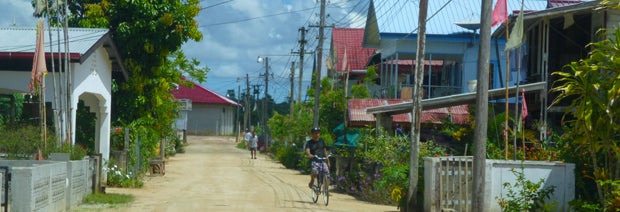Just 20 kilometers to the south of Suriname’s capital, Paramaribo, lies the community of Domburg. With its 5.700 residents, this is one of the communities in the districts of Wanica and Para that has not had access to reliable potable drinking water services in 40 years. Although the infrastructure for water provision is in place, the amount of water being produced has been insufficient to meet the demand. Also, the unreliable supply has brought about a slow but steady degradation of the distribution network. To have access to water, the residents dig their own wells, harvest rain water or pay for trucks to deliver water to their homes, which can be 10 times more expensive than tap water.
In recent newspaper articles (de Ware Tijd) residents have voiced their discontent with the situation stating “we pina lek dagu. Watra srefi no de” translated: “we are deeply suffering from the lack of water”.

How to address the situation after 40 years? Is it even possible?
In March 2012, the responsibility for water provision in Domburg was taken over by the N.V. Surinaamsche Waterleiding Maatschappij (SWM, in English: the Suriname Water Company), a state owned company. In order to provide the community of Domburg with potable water, the SWM embraced a staged-approach: as a first step, an extra well was dug at the pumpstation Livorno, to enable the station to provide extra water to Domburg. The second step will involve increasing the drinking water production at the pumping station of La Vigilantia, which lies a bit further to the south, from 200 -250 m3/hour to approximately 450 m3/hour. In the third step, the extra water produced at this station will be transported to the Domburg area to fulfill the present and future water demands of the community. Furthermore, the SWM plans to rehabilitate the current distribution network.
This is great news for the Domburg residents. What is also good news is that part of the works will be financed through the US$12 million “Water Supply Infrastructure Rehabilitation” program financed by the Inter-American Development Bank. Funds from the Bank will be specifically used to finance the deeper laying of pipes (in order to avoid the current pipes from being damaged); the rehabilitation of older pipelines in the Domburg area; and the upgrade of the transmission lines between the stations of La Vigilantia and Livorno.
The Domburg residents have started hoping for the better. It turns out that thanks to some good long-term planning and solid cooperation, they might have a good reason to do so!



Leave a Reply